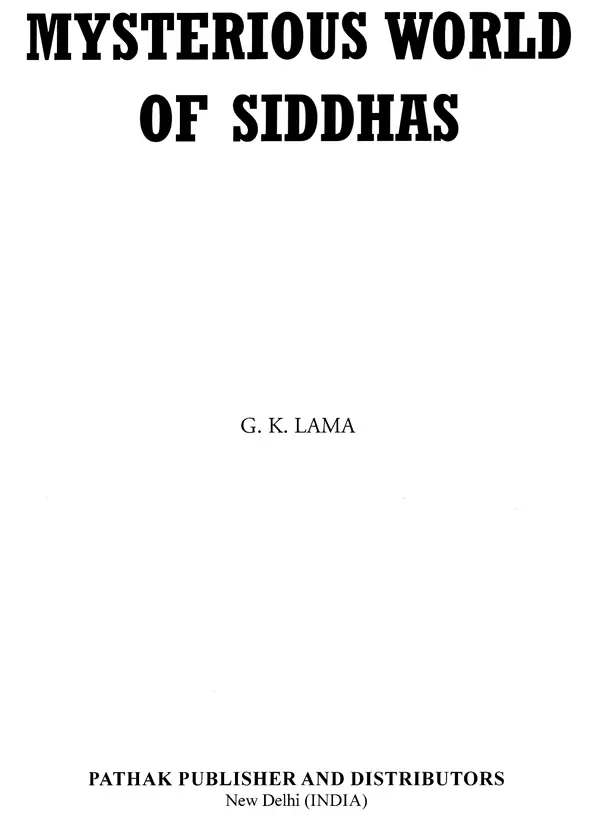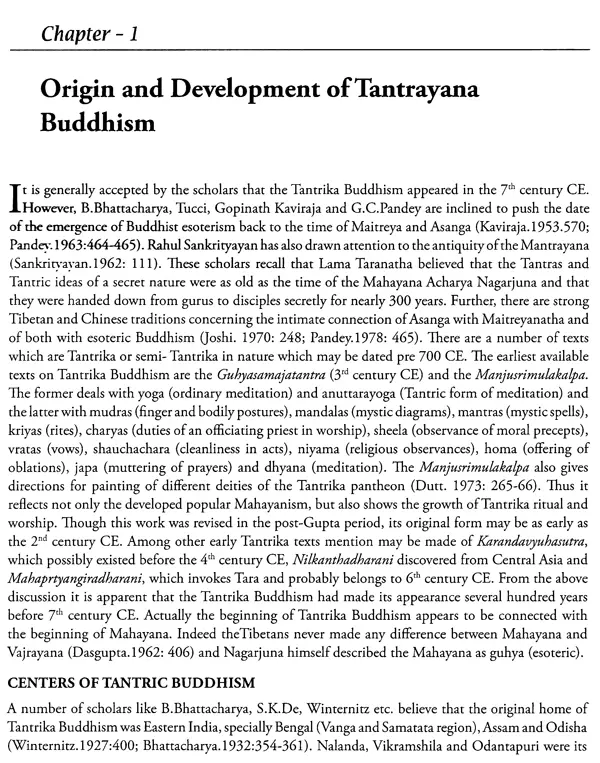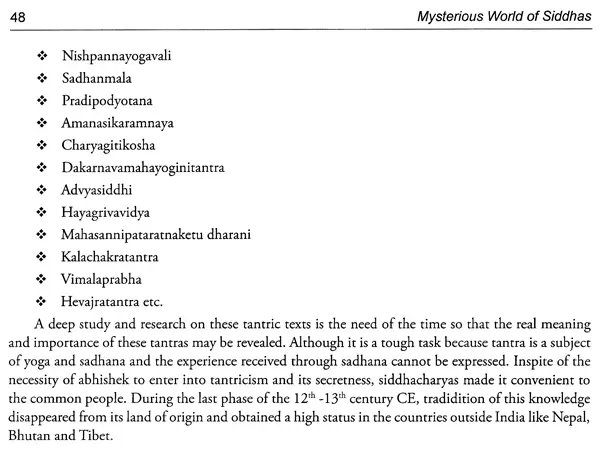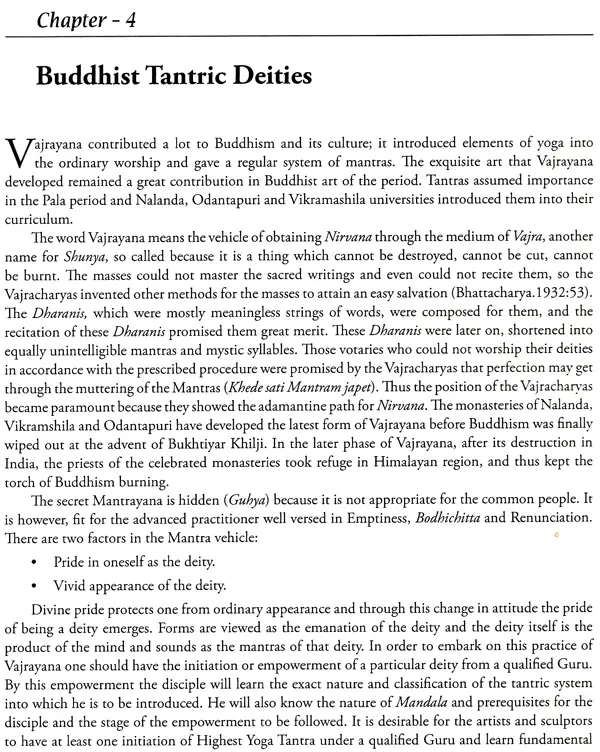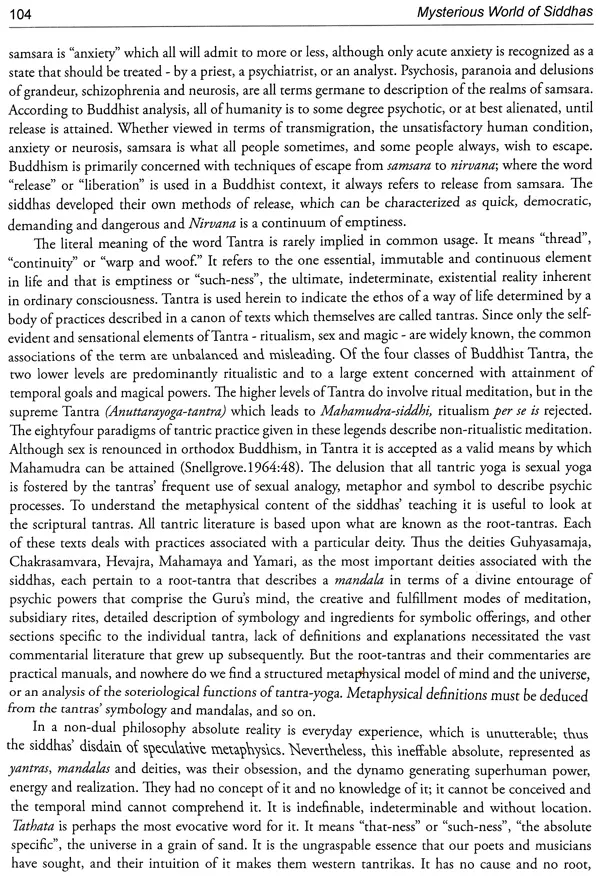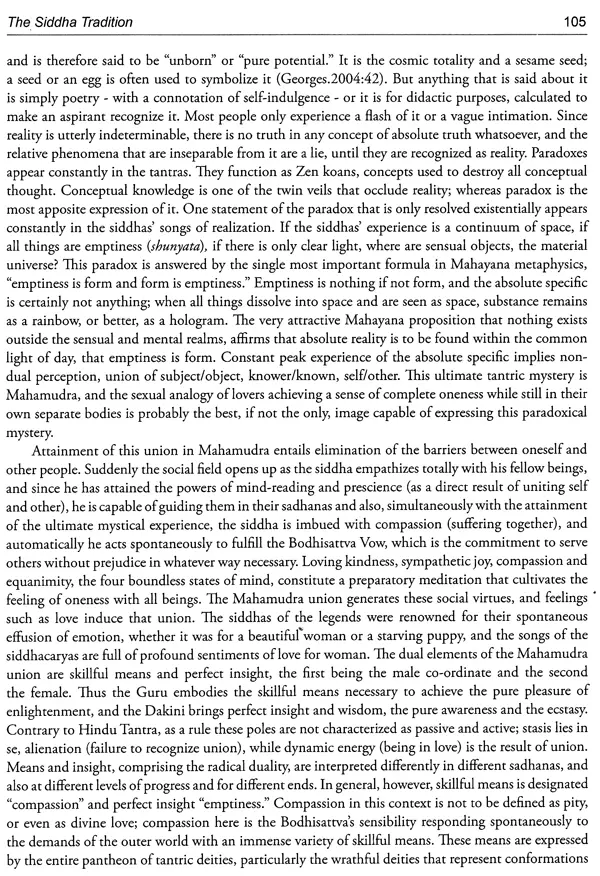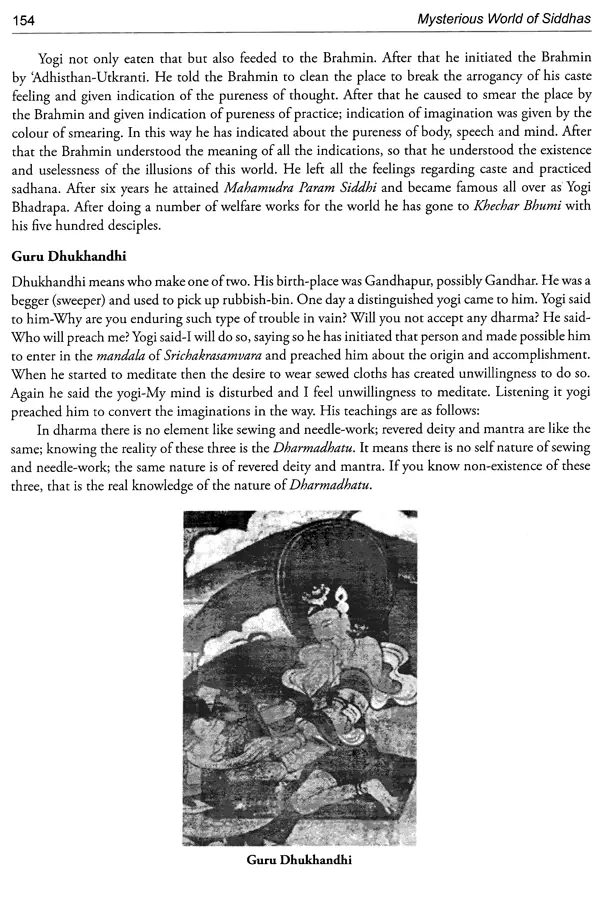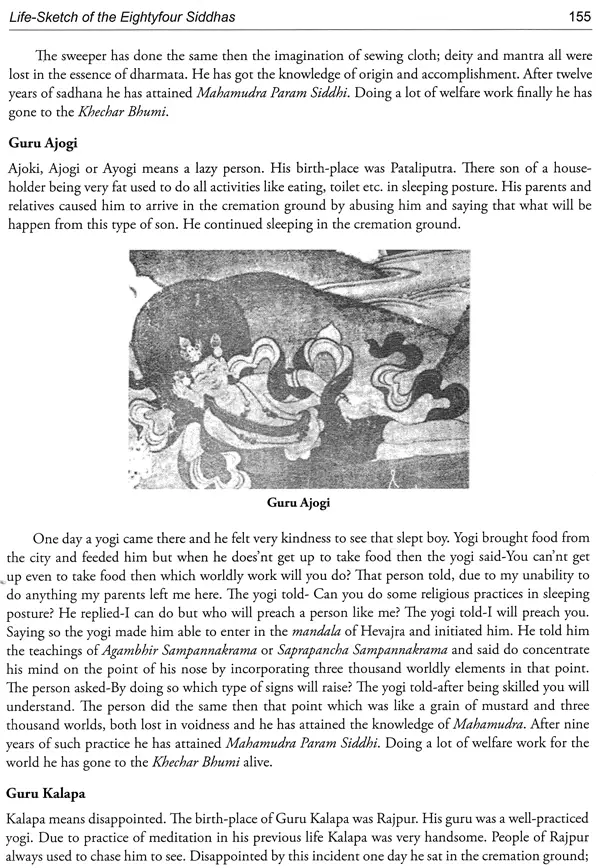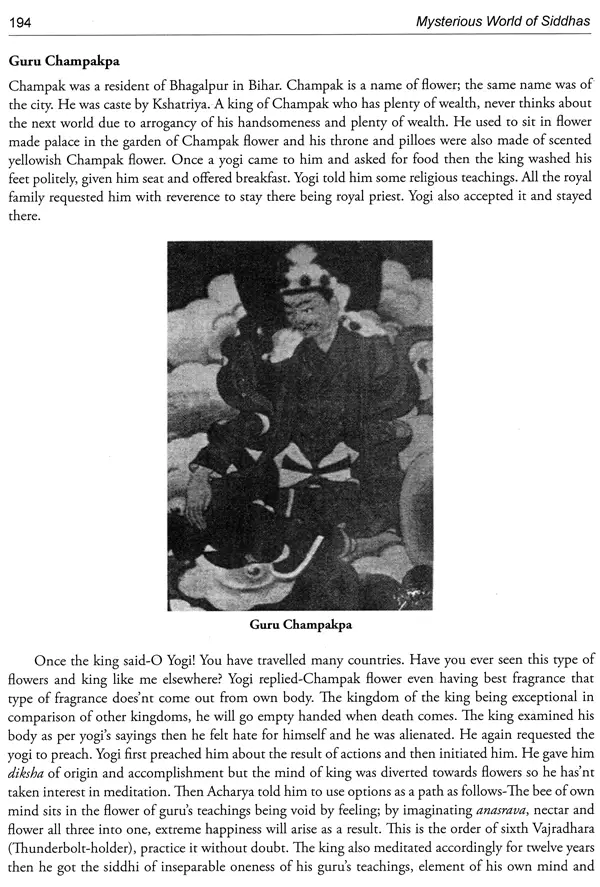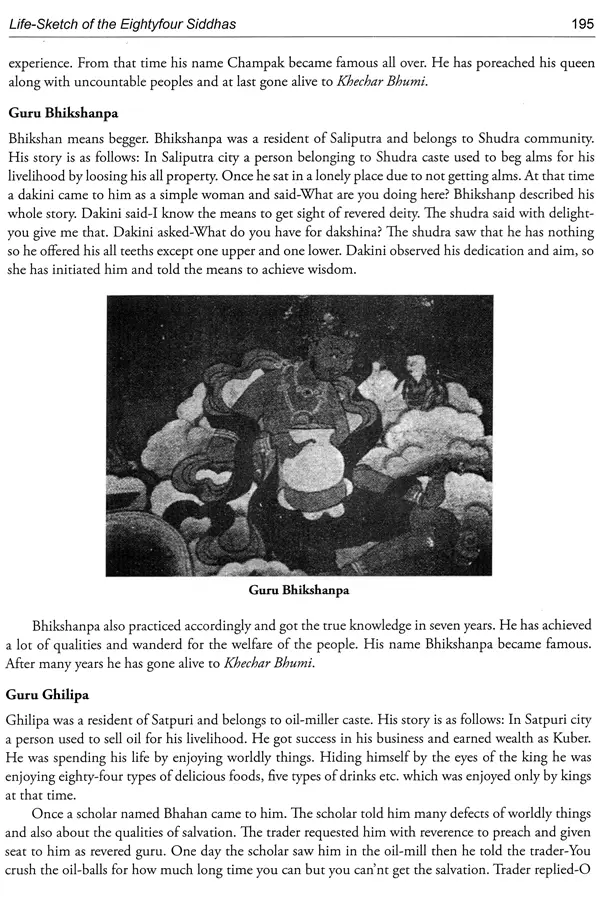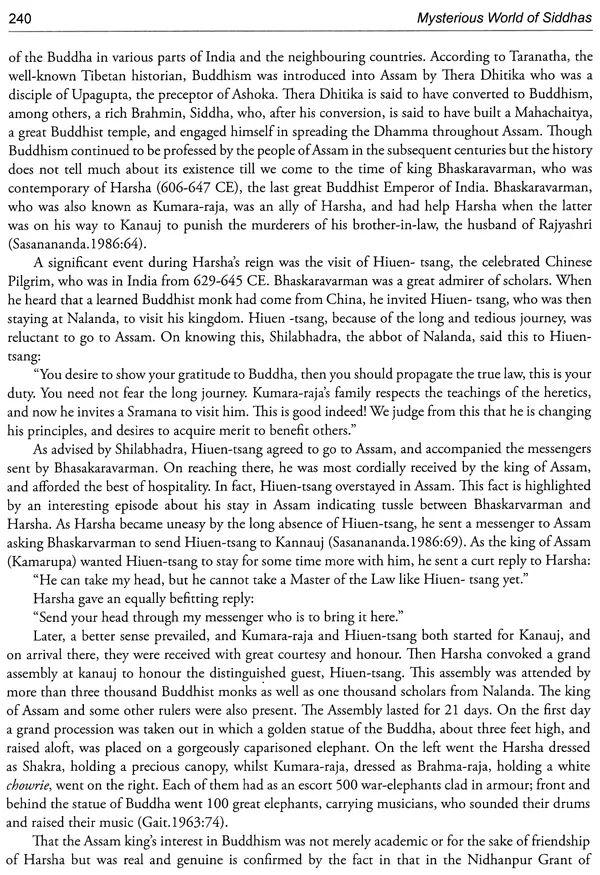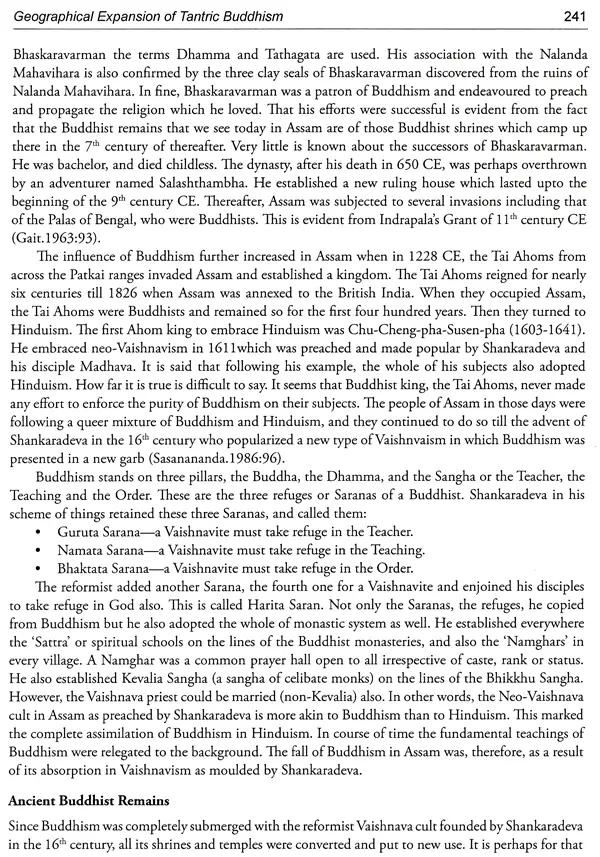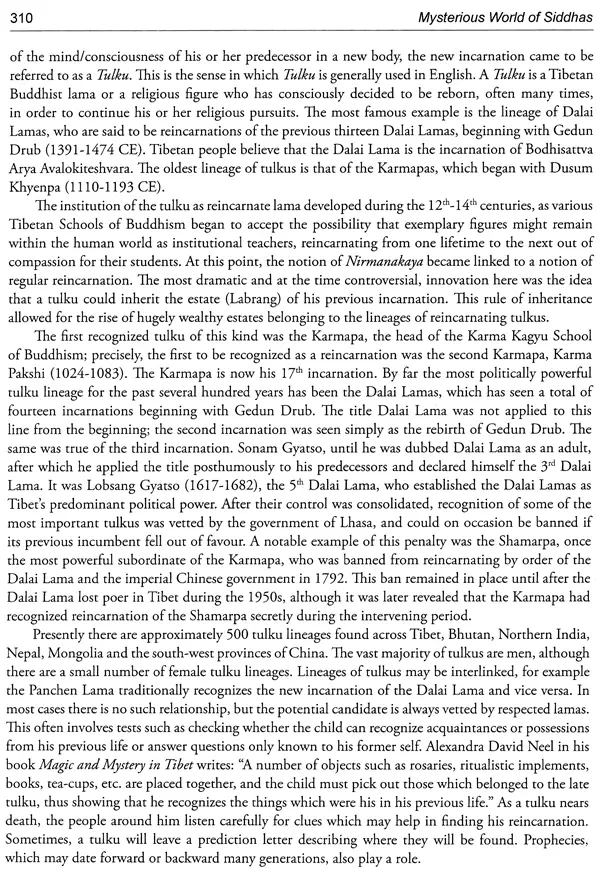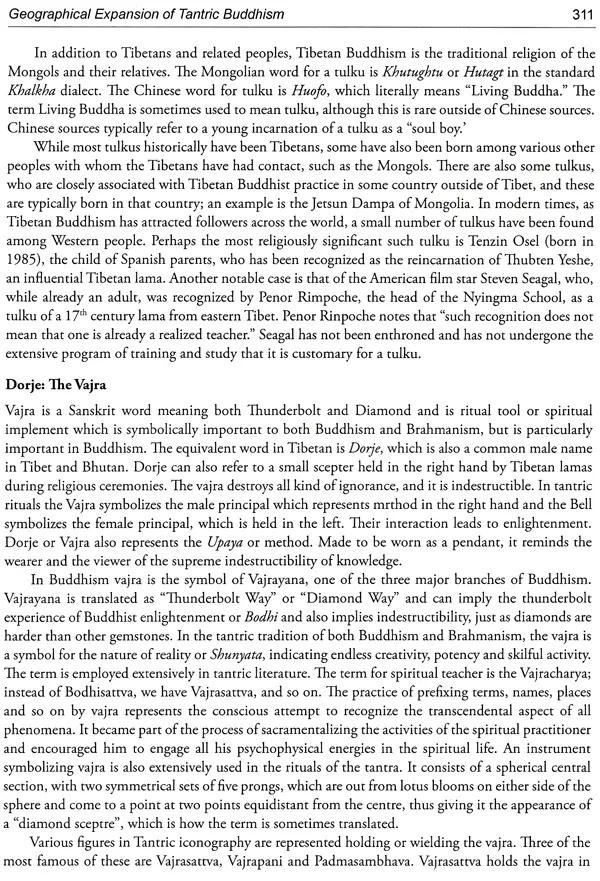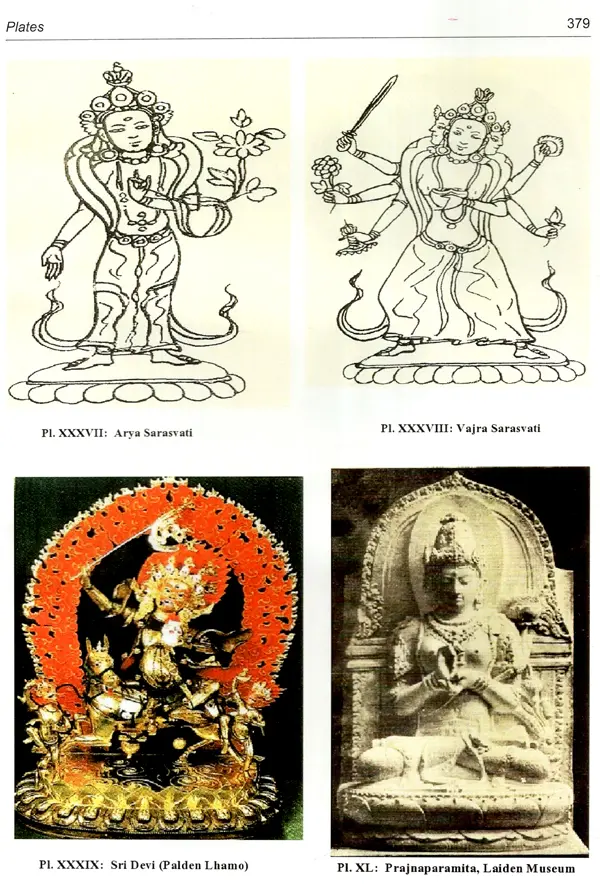About the Book The life and activities of Tantric siddhas was mysterious to the common people, so that people were either afraid or hated this path and its followers. A number of scholars had criticized this path due to its practices but so many scholars are in favour of this cult and its teachings. Now it is the time to let know the people its reality, so that I have tried my best to reveal all the mysteries of this tradition. In this book discussion was made about the origin and development of Buddhist Tantra, its divisions, literature, deities, geographical expansion of the cult, Siddha tradition and the life-sketch of eighty-four Siddhas. The book is well supported by illustrations, maps and reliable information. The author has tried his best to consult original texts of Tantra on various topics.
About the Authors Dr. G. K. Lama, Professor, Department of AIHC & Archaeology, Centre of Advanced Study, Banaras Hindu University, Varanasi, having specialization in the field of Archaeology, Buddhism and South-East Asian Studies, has thirteen books in his credit namely Tibet Men Bauddha Dharma Ka Itihas-2004; SamyakDarshan-2004; Cultural Heritage of South-East Asia-2009; Indus to Ganges-2009; Pakkakot: Some New Archaeological Dimensions of Mid-Ganga Plain-2012; Buddhist Cave Temples of Ancient India-2013; A Buddhist Universe-2016; An Archaeological Journey of Nalanda-2 0 1 8 ; Art Heritage of Nalanda-2018;India: A Journey from Lithic to Iron-2019;Footprints of the Buddha on the Roof of the World-2020,Glimpses of North-East India-2021,Indian Culture through the Ages-2021.He has presented 67 research papers in various National and International seminars and 103 research papers have been published in various reputed journals, edited books, conference proceedings and felicitation volumes. He has completed a Major Research Project entitled Archaeological Investigation in and around Nalanda, granted by the University Grants Commission, New Delhi, which was submitted in 2014. The author has also completed 16 projects regarding archaeological investigations in Sikkim, Eastern and Western UP and Bihar with the kind permission of Archaeological Survey of India, New Delhi. He has invited twice to Sri Lanka and once to Thailand to deliver special lectures.
Preface The aim and objects of the Buddhist tantra are widely different from those of the Hindu tantra. It is a difficult task to determine when and under what circumstances the word tantra was used, nor is it possible to trace the person who first introduced them. It will be evident that when the mystical practices become popular with one section of society, the other section incorporates in its religion in a modified form to suit its own requirements and tenets. So that Tantrism existed from very early times and was transmitted in the most secret manner possible from time to time. So, it can be seen that Tantrism was handed down from the most secret manner possible before its followers could swell in number so as to openly declare themselves and preach their doctrine. Siddhi, Siddha and Panchmakara, these words create a mysterious world. Since beginning the path of Tantrism, its teachings and practices was kept secret. The life and activities of Tannic gurus was also mysterious to the common people, so that people were either afraid or hated this path and its followers. The sacredness of this path greatly harmed this cult.
According to Waddell Buddhist Tantricism is nothing but Shaiva idolatry, Shakti worship and demonology. On the other hand, B. Bhattacharya, in his Introduction to Buddhist Esoterism, has concluded that the Buddhists were the first to introduce the Tantras into their religion, and that the Hindus borrowed them from the Buddhists in later times. According to Anagarika Govinda also, the influence of the Tantric Buddhism upon Hinduism was so profound that up to the present day the majority of Western scholars have laboured under the impression that the Tantricism is a Hinduistic creation which was taken over later by more or less decadent Buddhist schools. According to some scholars the main difference between Brahmanical and Buddhist Tantricism is that the latter is not Shaktism. The concept of divine power of the creative female aspect of Shiva does not play any role in Buddhism. To the Buddhists Shakti is maya, the very power that creats illusion from which only prajna can liberate us.
A number of scholars had criticized this path due to its practices but so many scholars are in favour of this cult and its teachings. Now it is the time to let know the people its reality, so that I have tried my best to reveal all the mysteries of this tradition. In this book discussion was made about the origin and development of Buddhist Tantra, its divisions, literature, deities, and geographical expansion of the cult, Siddha tradition and the life-sketch of eighty four Siddhas. The book is well supported by illustrations, maps and reliable information. Hope the book will be useful for those people who are interested in Buddhist Tantra and its Siddha tradition. It will be also helpful to clear the concept about this faith.
Introduction The word Siddha denotes an alienated personality who has done tough meditation and achieved some surprising powers and by using them he became able to awaken the spiritual powers and be able to achieve the Moksha. The meaning of the word Siddha is used in two ways. In Amarkosha Siddha is mentioned as a divine caste which is similar to Yakshas, Gandharvas, Kinnars etc. and which is supposed to be as gods. The great poet Kalidas has mentioned some lady siddhas in his work Meghadoot. Valmiki in his work Gangashtaka describes about some lady siddhas who are taking bath in the River Ganges alongwith Gandharvas, Deities and Kinnars. In Puranas it is said that the number of siddhas is eightyeight thousand and they are immortal. It is also guessed that like Gandhrvas and Kinnaras they used to reside in Himalayas. In Mahabharata at so many places it is indicated that siddhas are residing in the Himalavas. The story of Nala-Damavanti may be noted as evidence. According to C.V.Vaidya the residential area of Siddhas may be the southern plateau of the Himalaya. In the society of sadhakas it is believed that the siddhas used to reside in a mysterious place named 'Sri Siddha Mandalasram.' It is believed that the siddhas have supernatural powers. They are free from the limitless of time and space. They can take any shape whatever they desire and can move freely in water, air, on the earth and also in the space. Sadhakas believe that still siddhas are moving in the Himalayan region from Yamunottari up to Nanda Devi.
Another use of the word siddha is for those people who by doing tough meditation achieved the siddhis. In Srimadbhagvadgita siddhas are referred while describing about the splendid form of Lord Krishna. Lord Krishna himself says in Gita that among siddhas he is Kapil Muni. Goswami Tulsidas has mentioned the siddhas with desireless persons, munis and yogis and referred them different from the devas and kinnaras and said that they manifest the deities by their believe and reverence. In the Buddhist world it was believed that Pratyek Buddhas are Siddhas. Vrindavan Bhattacharya writes in his book Sarnath Ka Itihas: "The deties residing in the Suddhavasa communicated with the Pratyek Buddhas of Jambudvipa and told them that after 12 years Bodhisattva will come down in the Tushita Loak, so you people have to leave the region of Buddha. By hearing it all the Pratyek Buddhas finished their time and got Parinirvana. It is said that half Yojna from Varanasi there lived 500 Pratyek Buddhas. All of them doing forecast separately of getting the status of Nirvana." Oldenberg writes: "In the language of Buddhists, Pratyek Buddha is not considered as Samyak Sambuddha because to get the status of Samyak Sambuddha exceptional meditation is needed. In Buddhist literature Pratyek Buddhas are known as last physically seen siddhas. Again and again discussions are made about Pratyek Buddha in the 2nd chapter of Saddharmapundarika Sutra, known as Upayakaushalyaparivarta."
Buddha achieved these all siddhis during his 6 years period of sadhana. In Buddha's opinion these siddhis are obstacles in the way of nirvana. He never wants to show off of these siddhis but when he found necessary, he used these powers. For example, he showed the power of Anima and became invisible when he visited the heaven to preach Abhidhamma to his mother Mahamaya Devi.
**Contents and Sample Pages**
